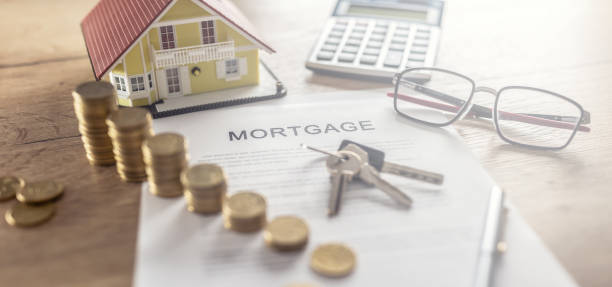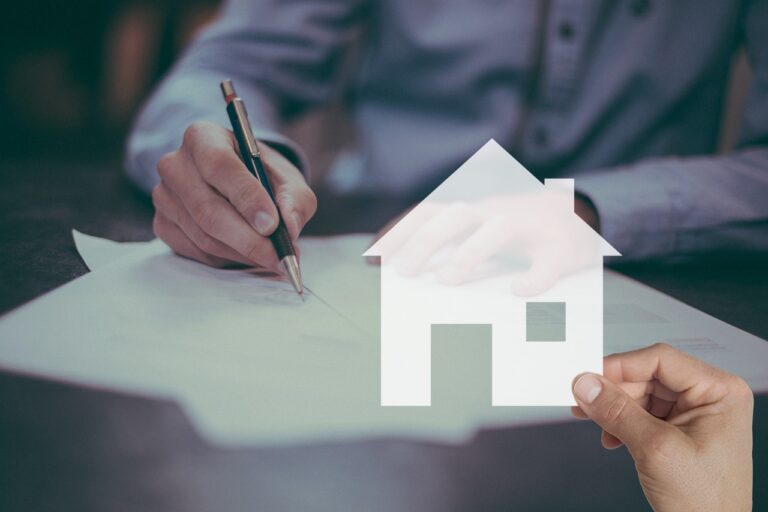25 Mortgage Questions You Should Know The Answer To
When meeting with your mortgage lender, there are certain questions you need to ask before closing.
Whether you are a first-time homebuyer or you wish to refinance your home, then knowing some of these mortgage questions answered by an expert, would be a big catch to sealing the best closure deals.
You should know the answers to several mortgage questions because it would help you in making smart decisions and in saving you a ton of money.
Previously, we discussed What Is a Mortgage? Home Loan Basic for Beginners, we suggest you read that before proceeding because understanding mortgage terms would make answering mortgage questions a lot easier.
25 Mortgage Questions You Should Know The Answer To
Just like in a job interview, you can ask your potential lenders some mortgage questions, which you readily have answers to. This would help you find the right lender and the best home loan options.
Check the questions below to know how to find the best mortgages for first-time home buyers, refinancing,
- Which type of mortgage is best for me
- How much house can I afford
- What kind of loan should I get
- How much down payment will I need
- Can I get a loan without down payments
- Do I qualify for any down payment assistance programs
- What is my interest rate
- What is the annual percentage rate
- Is there anything I can do to reduce my interest rates
- Are you a mortgage broker or a direct lender
- Are you doing a hard credit check on me today
- Do you charge for an interest rate lock
- Will I have to pay mortgage insurance
- Who pays the taxes and insurance
- What will be my monthly payment
- Do you have an origination fee
- What are other costs that I will pay at closing
- What are the additional costs that are included in my monthly payments
- Will I have to pay discount points
- How and how often will I be updated on the loan’s progress
- Do I have to sign all the papers works in person
- How long until my loan closes
- Can you guarantee my loan will close on time
Which Type Of Mortgage Is Best For Me?
By asking your mortgage lender the type of loan that is best for you, you will be able to find out if your lender is knowledgeable in the financial sector. This is the most important of the questions for mortgage lenders.
From your mortgage interview questions, your lender would only list out the mortgage types if he is not a good quality adviser and salesperson. The two types of home loans are government and conventional loans.
How Many Houses Can I Afford
This is where you become pretty realistic about the kind of mortgage plans and type of house that your cash can afford you.
In a case where you cannot determine the pre-qualifications that would ensure you can afford a mortgage, the lenders step in to help you do the math for the mortgage processes.
it is advised that you spend 25% or less of your annual income on your mortgage.
What Kind Of Loan Should I Get
When you ask this question, you expect to find out from your lender the different types of loans, which can either be a fixed-rate loan or an adjustable-rate mortgage (ARM), and their pros and cons.
Fixed-rate mortgages last between 15 to 40 years. Variable term loans on the other hand are slightly short term. The first interest rate is usually low and then it increases with time.
How Much Down Payment Will I Need?
You can get a 3% down payment with a qualified buyer; however, a down payment of less than 20% is very ideal. The best lenders would help you make all the right money moves.
Can I Get A Loan Without Down Payments
Government loans require very low down payments which are in contrast with conventional loans. Most government-insured loans allow borrowers to obtain mortgage loans without down payments.
Some of these mortgages include U.S. Department of Agriculture (USDA) loans for borrowers resident in rural areas and suburban; and the Department of Veteran Affairs (VA) loans for military personnel, veterans, and their spouses.
Do I Qualify For Any Down Payment Assistance Programs?
This is another one of the smart money moves you can make to determine the value of your mortgage lender. If you do not get a reasonable response, then you should spot this as a red flag.
There are down payment assistance programs at the national, state, and local levels. Some lenders know this and can help you navigate the necessary processes.
What Is My Interest Rate?
This is a must-ask question before getting a mortgage. Lenders can help with adjusting the additional costs on your mortgage interest rates.
If you intend to go for a fixed-rate loan, then, find out about the monthly mortgage payment and the payment interest rate. For an Adjustable-Rate Mortgage (ARM), you will have to ask: what is the base rate of the mortgage? What is the highest Cap on the interest rate? How often can the rates be changed?
What Is The Annual Percentage Rate?
After finding out the payment rate, next is to determine the annual percentage rate. The Annual Percentage Rate (APR) is a total of the monthly payment rate to be paid in a year.
The bonus point of APR is that there are discount points for an APR. Discount fees are extra charges you pay when closing to lower your interest rate.
A higher APR is ultimately not a bad idea since you would be able to get lower payment rates with your discount points. Ensure that you ask your mortgage broker questions properly so that you don’t get tied up with the funds.
Is There Anything I Can Do To Reduce My Interest Rates
The factors that determine your interest rates include; the loan type, your down payment, and your credit history. This is certainly one of the mortgage questions you should know the answer to.
Your mortgage lender may try convincing you upfront that the interest rates cannot be adjusted, but this isn’t true.
Also, you can reduce your interest rates by avoiding loan applications and the creation of new credit cards. These activities lower your credit score.
Are You A Mortgage Broker Or A Direct Lender
Asking this question to your real estate lender will enable you to find out the kind of transactions that you can pull off.
A mortgage broker documents your mortgage application and sends it across to different lenders. Conversely, a mortgage lender processes your application and helps you obtain the loan directly.
Are You Doing A Hard Credit Check On Me Today?
This is another key question to ask your mortgage broker or lender.
It is best to know if your mortgage lender is performing a hard inquiry or a hard credit check on you. This credit check helps your lenders find out your payment history in order to quote your interest rate.
If the hard credit checks occur for a long time, you may get a higher credit score.
Do You Charge For An Interest Rate Lock?
By locking your interest rate, you would ensure that it does not go up or down. There is no cost or charge for an interest rate lock-in an equity home loan. This is one of the questions to ask your mortgage lender because there is typically no charge for this.
Will I Have To Pay Private Mortgage Insurance (PMI)
If your down payment is less than 20%, then you would definitely have to pay mortgage insurance. If the mortgage insurance is paid by the lender, then eventually, the cost would be added to your mortgage payment.
This would ultimately increase your mortgage principal and interest rate, therefore it’s best to know this.
To avoid paying mortgage insurance, you can simply make a larger down payment. There are also other loan plans that do not require mortgage insurance just that the eligibility for such loans may be slim.
VA loans owned by the Federal Government are for members of the armed forces and veterans. These loans do not require down payments or PMI.
Who Pays The Taxes And Insurance?
Asking questions about mortgage would include that you know ‘who’ pays for ‘what’. Not all mortgage payments require property tax and insurance payments.
The insurance and tax charges may be collected by your mortgage lender and held in an escrow impound account. These charges would be duly paid from your escrow account, saving you much stress.
What Will Be My Monthly Payment?
You may have asked this question indirectly when finding out how much you will pay for the mortgage principal. Your monthly mortgage payment will help you properly plan your finances and expenditure.
If you wish to refinance or pay off the mortgage earlier than was agreed on, you would also want to ask if there is any prepayment penalty.
Do You Have An Origination Fee?
Ensure to ask your lender if you are to pay the origination fee before closing the mortgage. This origination fee is the administrative cost of the lender; it may be between zeros to one percent of the total loan value.
An origination fee guarantees the lender of additional profits other than the interest rate. Next is to ask: What are all of your lender fees? This helps you find out all the additional costs that you may have to pay to the lender.
What Are Other Costs That I Will Pay At Closing
This is another one of the most common questions to ask a mortgage lender when buying a home for the first time.
Normally, you would have to pay fees to third parties for the home inspection or appraisal, property taxes, title search, among other closing costs. Your loan estimate document and closing disclosure would contain all the closing costs that you may have to pay.
You may have to compare charges by negotiating with different mortgage lenders if the additional costs are just too much.
What Are The Additional Costs That Are Included In My Monthly Payments?
This is a very significant point on the questions to ask about a mortgage. Your monthly mortgage payments would include the balance amount of the loan’s principal and interest.
Your payment on the first month would be more of interest than the principal. But as you advance with the loan payment, the interest rate that you will pay will become lesser.
Exceptions are to this if you sign up for a variable rate loan. In this kind of loan, the interest may be adjusted and as such, the interest rate may go up as you advance with your loan.
Will I Have To Pay Discount Points
The discount points or simply ‘points’ are made up of prepaid interest rates at closing to reduce the overall monthly payments. This is just like you buy down the rates.
Take note of other lender fees that may tag along with the discount points such as; document preparation, processing, and underwriting. With proper negotiations, these charges may be cut loose.
How- And How Often Will I Be Updated On The Loan’s Progress?
You will want to know if the lender will keep in contact with you during the mortgage loan process. Can you contact your mortgage lender through email, phone, or the real estate website?
Find out if the lender is eager to meet up with your expectations from the service or reluctant to establish them.
Do I Have To Sign All The Paperwork In Person?
Determine if there is a mortgage e-closing or if it’s just a traditional mortgage closing that is available to borrowers.
The reason why an e-closing is preferred to much mortgage paper works is that you can easily check to ensure that all the documents have been properly signed. There are also lesser chances of missing documents.
How Long Until My Loan Closes?
The closing date is one of the things to know before signing a mortgage. You have to be sure if you are going to close your mortgage loan anytime soon or if there would be many reasons for a further wait until the closing date.
Finding how long it will take before you close your loan, would also better position you to get to know what you should not do before signing the closure documents from the mortgage lender.
Can You Guarantee My Loan Will Close On Time
Of the many details contained in ‘what to Ask a mortgage broker or Lender,’ the time your mortgage loan closes is very critical.
Provide your lender with all the documents and information that he may need. You can contact a real estate attorney if your loan does not close on time.
Conclusion
The mortgage questions you should know the answer to, are supposed to serve as guides, by introducing you to the financial sector through mortgage loans.
I hope this article was handy in analyzing the process of getting a loan and purchasing a house.




